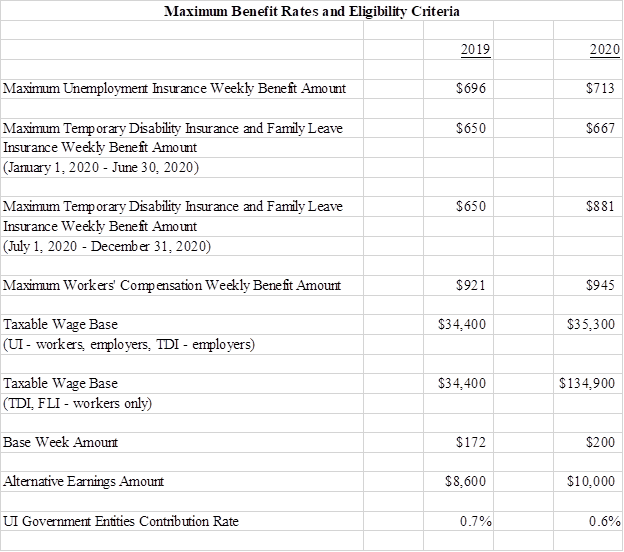The newly enacted
Oklahoma "Opt-Out" workers' compensation system has been urged by reformers as an effort to provide a more efficient and effective than its century old program enacted in the early 1900s. A comparison of the Oklahoma Opt-Out system to the New Jersey system reflects a limitation on litigation and a return to a more administrative program. Additionally, the opt-out system would provide for injured workers' choice of physician that ultimately could be blended into an employer based health program.
The changes are dramatic, and a major shift from the traditional based system such as New Jersey has followed since 1911.
Obviously the future statics will be reviewed by all stakeholders to determine if the Opt-Out System can really satisfy the concerns of all stakeholders or just a few.
Radical statutory changes to workers' compensation that have been limited to the interests of specific interest groups in the past have been met with disasters. The Opt-Out System of Oklahoma appears to be one of those programs, and has been bitterly contested by the advocates of injured workers.
In order for the creation of an optimal system of compensation to meet the socio-political-economic changes that are occurring in the world, all parties must sit at the table and work out a plan together. The Oklahoma Opt-Out system just appears to be bad medicine for a very ill system.
New Jersey Traditional v Oklahoma Opt-Out
Hearing Officials
The Jersey System:
Case are heard by Compensation Judges nominated by the Governor and the system is administered under the
Executive Branch of government. There are
50 Compensation Judges.
The Oklahoma Opt-Out System:
Starting on February 1, an administrative process with three appointed commissioners will replace the current court procedure with 10 judges for litigating workers’ compensation claims.
Temporary Disability Benefits
The Jersey System:
If an injured worker is disabled for a period of more than seven days, he or she will be eligible to receive temporary total benefits at a rate of 70% their average weekly wage, not to exceed 75% of the Statewide Average Weekly Wage (SAWW) or fall below the minimum rate of 20% of the SAWW. These benefits are provided during the period when a worker is unable to work and is under active medical care.The limit is 450 weeks. The
maximum temporary disability rate for 2013 is $826.00.
The Oklahoma Opt-Out System:
Temporary disability payments will be reduced to 104 weeks instead of 156 weeks, with a cap at 70 percent of the state’s average weekly wage, about $540 per week.
Permanent Disability Benefits:
The Jersey System:
Partial Disability: When a job related injury or illness results in a partial permanent disability, benefits are based upon a percentage of certain "scheduled" or "non-scheduled" losses. A "scheduled" loss is one involving arms, hands, fingers, legs, feet, toes, eyes, ears or teeth. A "non-scheduled" loss is one involving any area or system of the body not specifically identified in the schedule, such as the back, the heart, the lungs. These benefits are paid weekly and are due after the date temporary disability ends.
Total Permanent Disability:
These weekly benefits are provided initially for a period of 450 weeks. These benefits continue beyond the initial 450 weeks provided that the injured worker is able to show that he or she remains unable to earn wages.
Wages earned after 450 weeks offset the weekly computation in proportion to the income at the time of the injury. Permanent Total benefits are paid weekly and are based upon 70% of the average weekly wage, not to exceed 75% of the Statewide Average Weekly Wage (SAWW) or fall below the minimum rate of 20% of the SAWW.
Permanent Total Disability is also presumed when the worker has lost two major members or a combination of members of the body such as eyes, arms, hands, legs or feet. However, permanent total disability can also result from a combination of injuries that render the worker unemployable.
The Oklahoma Opt-Out System:
Permanent disability payments will be reduced from 520 weeks to 350 weeks.
Choice of Treating Physician
The Jersey System:
None. Employer selected physician must be utilized.
The Oklahoma Opt-Out System:
Employees will be allowed to change treating physicians once so long as the selection is from a list of three doctors provided by the employer.
Arbitration or Alternate Dispute Resolution
The Jersey System:
None. All cases, including settlements, must be heard or reviewed by a Compensation Judge.
The Oklahoma Opt-Out System:
Employers can require arbitration as the exclusive way to settle claims and disputes with employees.



